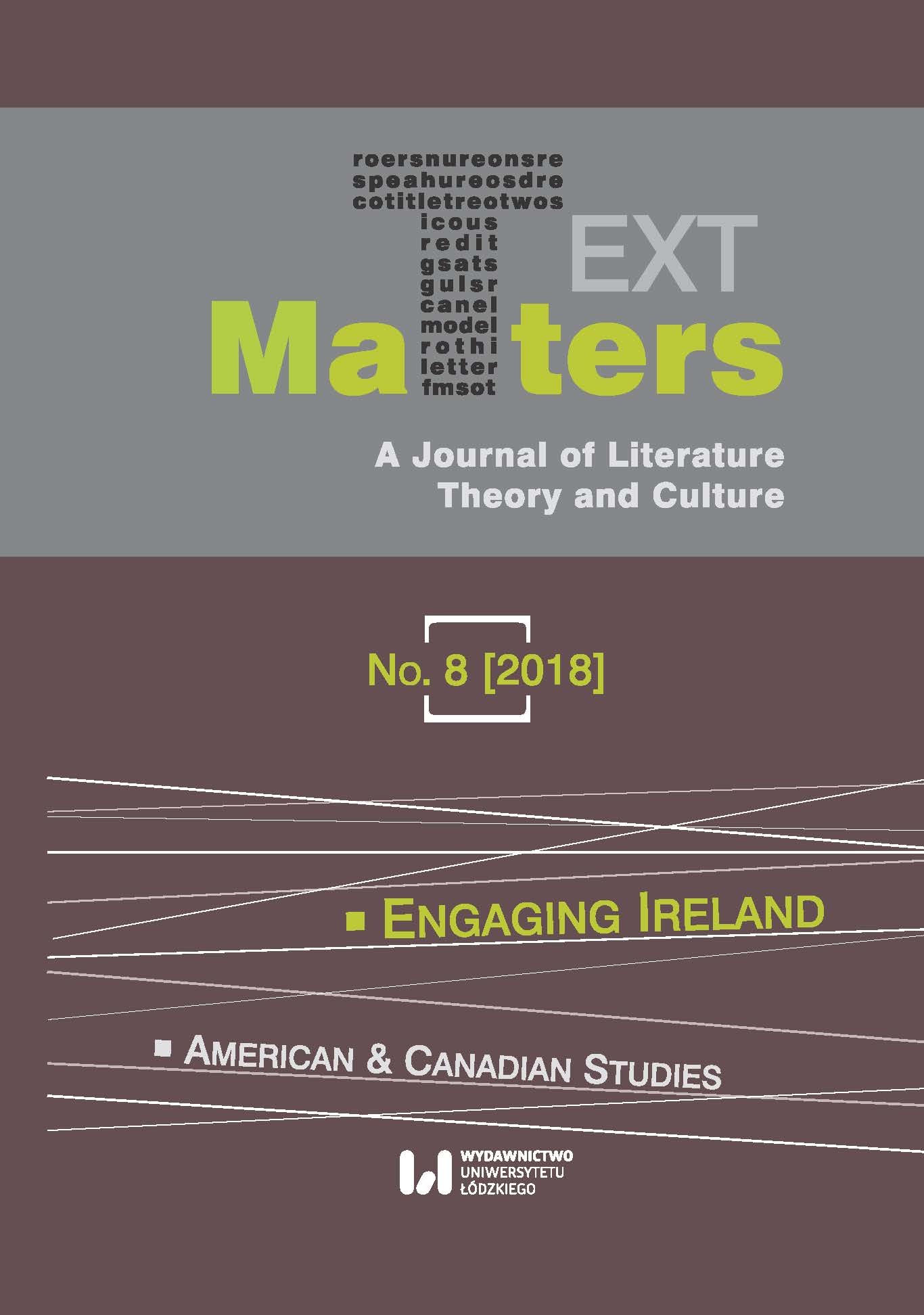Boundaries and Otherness in Science Fiction: We Cannot Escape the Human Condition
DOI:
https://doi.org/10.1515/texmat-2018-0013Keywords:
international relations, emotions, body politics, alien encounter, world stateAbstract
The article explores the construction of boundaries, alterity and otherness in modern science-fiction (SF) films. Boundaries, understood as real state borders, territoriality and sovereignty, as well as the construction of the other beyond an imagined border and delimited space, have a significant meaning in the dystopian settings of SF. Even though SF topics are not bound to the contemporary environment, be it of a historical, technical or ethical nature, they do relate to the present-day world and transcend our well-known problems. Therefore, SF offers a pronounced discourse about current social challenges under extreme conditions such as future technological leaps, encounters with the alien other or the end of the world. At the same time the genre enables us to play through future challenges that might really happen. Films like Equilibrium (2002), Code 46 (2003), Children of Men (2006) and District 9 (2009) show that in freely constructed cinematic settings we are not only unable to escape from our border conflicts, but quite the contrary, we take them everywhere with us, even to an alternative present or into the future, where new precarious situations of otherness are constructed.
Downloads
References
Arnswald, Ulrich, and Hans-Peter Schütt. Thomas Morus’ Utopia und das Genre der Utopie in der Politischen Philosophie. Karlsruhe: KIT Scientific Publishing, 2010. Print.
Google Scholar
Buzan, Barry. “America in Space: The International Relations of Star Trek and Battlestar Galactica.” Millennium. Journal of International Studies 39.1 (2010): 175–80. Print.
Google Scholar
Children of Men. Dir. Alfonso Cuarón. Perf. Julianne Moore, Clive Owen. Universal Studios, 2006. Film.
Google Scholar
Code 46. Dir. Michael Winterbottom. Perf. Samantha Morton, Tim Robbins. BBC, 2003. Film.
Google Scholar
District 9. Dir. Neill Blomkamp. Perf. Jason Cope, Sharlto Copley. TriStar Pictures, 2009. Film.
Google Scholar
Equilibrium. Dir. Kurt Wimmer. Perf. Christian Bale, Emily Watson. Miramax Films, 2002. Film.
Google Scholar
Fukuyama, Francis. The End of History. New York: Routledge, 1992. Print.
Google Scholar
Grosz, Elizabeth. Space, Time, and Perversion: Essays on the Politics of Bodies. New York: Routledge, 1995. Print.
Google Scholar
Harrison, Albert A. After Contact: The Human Response to Extraterrestrial Life. New York: Perseus, 2002. Print.
Google Scholar
Hobsbawm, E. J. Nations and Nationalism since 1780: Programme, Myth, Reality. New York: Cambridge UP, 1992. Print.
Google Scholar
Huntington, Samuel P. The Clash of Civilizations and the Remaking of World Order. New York: Simon, 1996. Print.
Google Scholar
Kiersey, Nicholas J., and Iver B. Neumann. “Introduction: Circulating on Board the Battlestar.” “Battlestar Galactica” and International Relations. Ed. Nicholas J. Kiersey and Iver B. Neumann. New York: Routledge, 2013. 1–17. Print.
Google Scholar
Kuhn, Annette, ed. Alien Zone. London: Verso, 1990. Print.
Google Scholar
Kuhn, Annette, ed. Alien Zone II. London: Verso, 1999. Print.
Google Scholar
McDermott, Rose. Political Psychology International Relations. Ann Arbor: U of Michigan P, 2004. Print.
Google Scholar
Mercer, Jonathan. “Rationality and Psychology in International Politics.” International Organizations 59.1 (2005): 77–106. Print.
Google Scholar
Neumann, Iver B. “Grab a Phaser, Ambassador: Diplomacy in Star Trek.” Millennium. Journal of International Studies 30.3 (2001): 603–24. Print.
Google Scholar
Nexon, Daniel H., and Iver B. Neumann. Harry Potter and International Relations. Oxford: Rowman, 2006. Print.
Google Scholar
Sontag, Susan. “The Imagination of Disaster.” Commentary Magazine 1 Oct.1965. Web. 30 June 2018.
Google Scholar
Stein, Janice Gross. “Foreign Policy Decision-making. Rational, Psychological, and Neurological Models.” Foreign Policy: Theories, Actors, Cases. Ed. Steve Smith and Tim Dunne. Oxford: Oxford UP, 2008. Print.
Google Scholar
Tajfel, Henri. Social Identity and Intergroup Relations. Cambridge: Cambridge UP, 2010. Print.
Google Scholar
Tajfel, Henri. “Social Psychology of Intergroup Relations.” Annual Review of Psychology 33.1 (1982): 1–39. Print.
Google Scholar
Tajfel, Henri, and John Turner. “The Social Identity Theory of Intergroup Behavior.” Psychology of Intergroup Relations. Ed. Stephen Worchel and W. G. Austin. Chicago: Nelson-Hall, 1986. 7–24. Print.
Google Scholar
Waltz, Kenneth. Theory of International Politics. New York: McGraw-Hill, 1979. Print.
Google Scholar
Weldes, Jutta. “Popular Culture, Science Fiction, and World Politics: Exploring Intertextual Relations.” To Seek Out New Worlds: Science Fiction and World Politics. Ed. Jutta Weldes. New York: Palgrave Macmillan, 2003. 1–20. Print.
Google Scholar
Wendt, Alexander. “Collective Identity Formation and the International State.” American Political Science Review (1994): 384–96. Print.
Google Scholar
Whitehall, Geoffrey. “The Problem of the ‘World and Beyond’: Encountering ‘the Other’ in Science Fiction.” To Seek Out New Worlds: Science Fiction and World Politics. Ed. Jutta Weldes. New York: Palgrave Macmillan, 2003. 169–93. Print.
Google Scholar
Downloads
Published
How to Cite
Issue
Section
License
Copyright (c) 2018 A Journal of Literature, Theory and Culture

This work is licensed under a Creative Commons Attribution-NonCommercial-NoDerivatives 4.0 International License.













